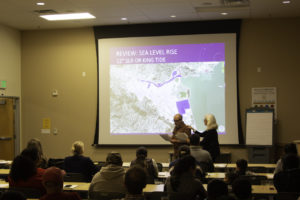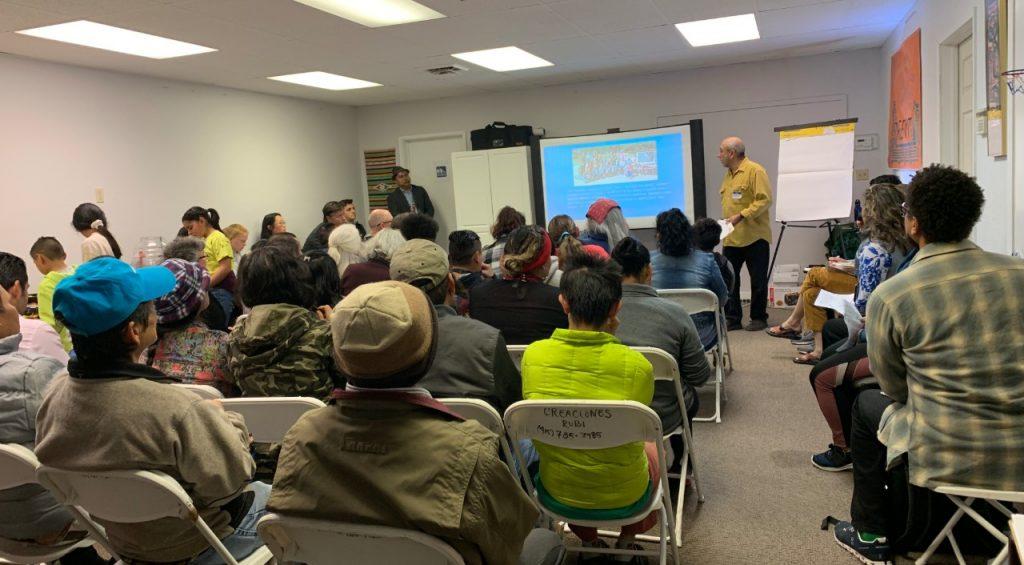by Emily Zou, NorCal Resilience Network Intern
The Canal Community Resilience Council (CCRC) is a part of the Multicultural Center of Marin’s Community resilience program, and is working to mitigate the local impacts of climate change in the Canal area of Marin County. Marco Berger, head of the Canal Community Resilience Council, notes that “The canal is particularly prone to sea level rise. It’s probably going to be one of the first to be affected in the area.” Located at a low elevation, issues of sea level rise are particularly pertinent to the neighborhood. Water levels in the San Francisco Bay can rise eight inches by 2035 and sixteen inches by 2050. Parts of the Canal could face up to two feet of flooding in the future.
The CCRC, comprised of members of the Canal neighborhood, convenes every month to discuss issues that could affect their community. And there are a lot of issues, including (but not limited to): housing, sea level rise, water quality, water access, flooding, waste management, transportation, and emergency preparedness. At CCRC meetings, stakeholders and community partners from local government agencies join to clarify policies and listen to citizen input.

Berger is keenly aware of this, observing that “People sit at home and they go, ‘Wow climate change. Stuff is going to go down. Things are gonna happen. But it’s over there somewhere, and I gotta put food on the table, I gotta pay rent.” However, he adds that communities are beginning to become more attuned to these issues. “I think as there are more things coming out about extreme weather and snowstorms in Texas, and people are starting to wake up.”
This work is a part of a larger impetus to provide local solutions to what is ultimately a global crisis: climate change.
That’s why it’s more important than ever to build community networks, so people know where to go for resources. That’s why Berger signed up to join the Resilience Hubs Leadership Training Program, “We’re really in an exploratory stage, we’re looking to see how we get involved and become a hub. It’d be good for people to know there’s a place for them to go for resources in a place of disaster.
Despite the added obstacles of the COVID-19 pandemic, Berger is persistent. “As long as I can keep doing work, that’s what I’m going to be doing.”
